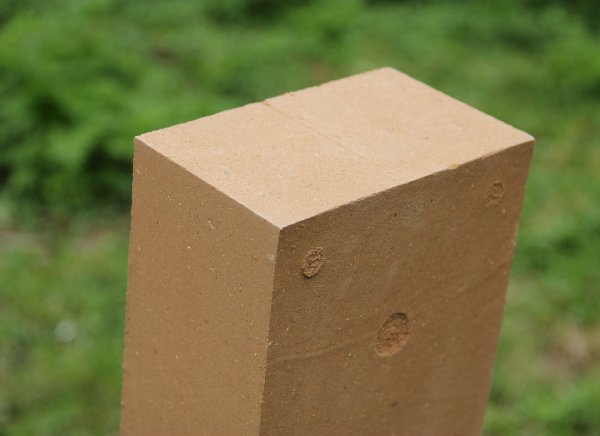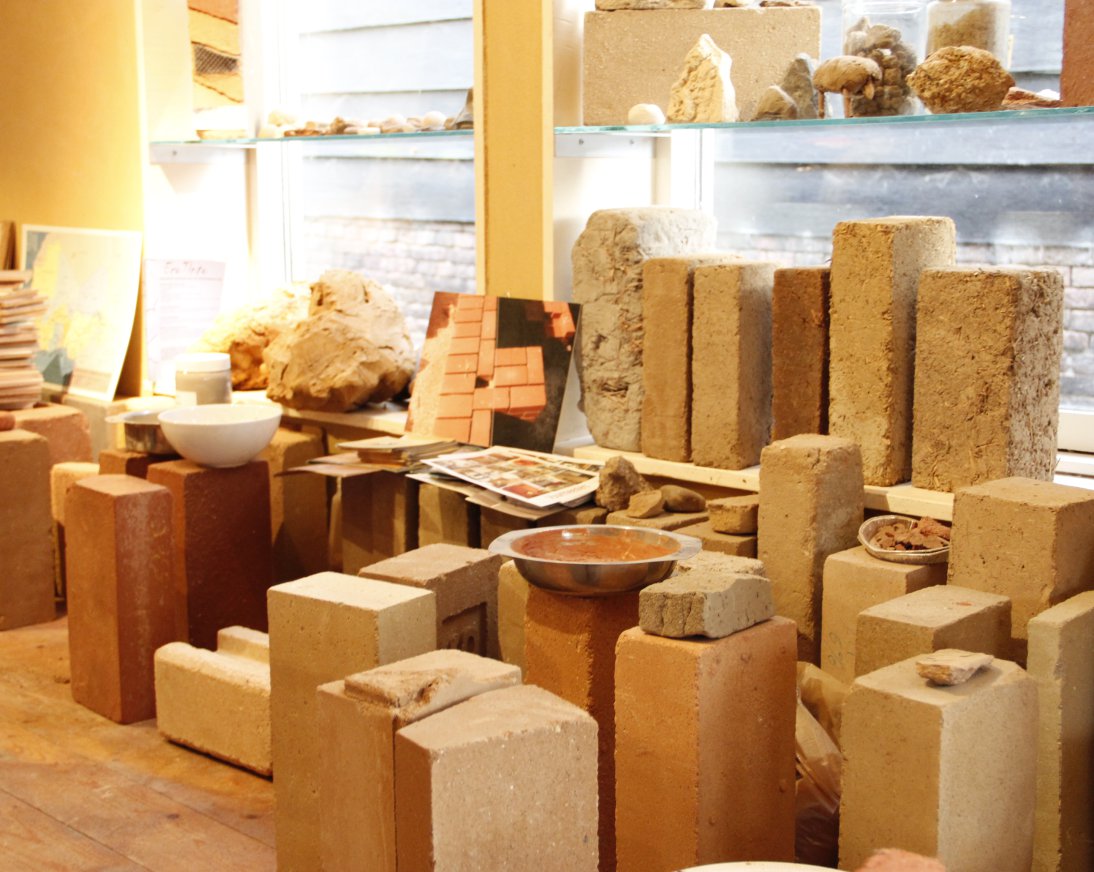From
€ 1.85
Quotation- Healthy living environment
- 1% energy consumption compared to the production of bricks
- Heat accumulating and moisture regulating properties
The Dutch compressed earth blocks are unbaked uniform building blocks pressed from clay and containing earth. The blocks are suitable for usage in loadbearing and non-load-bearing walls, accumulating walls, heat walls and fin ovens.

From
€ 1.85
QuotationThe Dutch compressed earth blocks are unbaked uniform building blocks pressed from clay and containing earth. The blocks are suitable for usage in loadbearing and non-load-bearing walls, accumulating walls, heat walls and fin ovens. A clay building forms a third skin around the user and has a warm, smoothing appearance.
Health
Clay regulates the climate in your home in a natural wat. The compressed earth blocks are not baked, so that the unique moisture-regulating and hear accumulating properties are retained. With humid air, the wall absorbs moisture, with dry air it releases moisture.
Due to the high mass of the compressed earth blocks, a wall can store and release heat well, so that temperature fluctuations are less.
Clay does not release harmful gases and substances into the indoor environment and also has a neutralizing effect on for example cigarette smoke.
The constant relative humidity of approximately 50% in a clay indoor climate prevents the formation of mold. That is why a house that is built with compressed earth blocks is a “relief”. Especially for people with respiratory problems.
The production process
The compressed earth blocks are produced with a mobile press machine in Emmen in The Netherlands, where the entire production runs on solar energy.
For larger projects, it is possible to place a press machine on the construction site itself, if the building land is of good quality.
The fertile topsoil is temporarily set aside, the clay-containing bottom layer is dried by sun and wind and then pulverized. Depending on the proportion of clay in the materiall, it is mixed with sand and slightly moistened. The press machine turns this into uniform compressed earth blocks, which are ready for construction after a few weeks of drying.
Sustainability and the environment
In many places in the Netherlands, clay (clay, salt, sand) is present in natural form at 20-30 cm below the fertile cultivation layer and can sometimes be extracted locally. Clay can also be mined from the construction pit or released as a by-product of road and hydraulic engineering projects
The properties of clay do not change during the production of the compressed earth blocks, so that clay can be reprocessed indefinitely, (only if bricklaying is done with clay and possibly plastered with clay and / or painted with breathable natural paint). The compressed earth blocks do not have to undergo any treatment to return to the ecological system.
Energy
Producing a compressed earth block requires around 1% of the energy required to produce a traditional brick. Only 1 liter of diesel is needed to produce 145 compressed earth blocks, making it a low-energy production process with minimal CO2 emissions.
Due to the relatively constant relative humidity of approximately 50% in a mud house, less energy will be required for heating compared to a traditionally built house, where relative humidity can reach 80% or more. Because a solid wall can store and release heat and solar energy well in the form of radiant heat when the temperature drops, energy is saved.
When insulating the outer wall of a compressed earth block wall, a large accumulation capacity is created, with the effect that the house is warm in the winter and cool in the summer.
Composition
Clay stone (clay, silt, sand) usually present in natural form.
Clay limestone (clay, salt, sand), addition of 5% lime (waterproof).
Shape, size, weight
Form. Rectangular (cloister format).
Size: 295mm x 140mm x 90mm
Weight: 7.5 kg per stone. 2200kg per m³.
Appearance
Smooth surface texture.
The compressed earth block usually has a brown color (depending on the loam type)
Mechanical properties (depending on the clay type)
Compressive strength of compressed earth block 4-6Mpa
Compressive strength clay limestone 6-18MPa
Product strength. 2 to 5 kN per suspension point, depending on the fastening technique.
Flammability
Not flammable
Gases, liquids, solids
Diffusion resistance number: m = <10.
Moisture absorption. Maximum 5 to 7% of the dry weight.
Resistance. Compressed earth block is not resistant to running water and rising moisture. The clay limestone is water resistant.
Thermal properties
Conduction. Heat conductivity coefficient: l = 1.13W / (K.m).
Heat resistance. Heat resistance at 40cm wall thickness: R = 0.354w / m².K.
Specific heat. Specific heat: Cw = 2000KJ / m³k.
With a solid mud wall of 40 cm thick, a thermal attenuation of 10% applies with a delay of approximately 10 hours.
Specific heat capacity. C = 1.0 kJ / kgK
Acoustic properties
Sound insulation: sound insulation with a 40cm thick wall: 56dB.
Electricity, magnetism and radiation
Clay does not charge electrostatically, has a neutralizing effect on earth rays and cosmic radiation and GSM and DECT radiation. Not affected by static magnetic fields and is insensitive to electromagnetic fields.
Energy saving
Energy savings through accumulation and moisture regulation. Energy savings of 30% were achieved in a project in Denmark in combination with solar energy.
Applicability, design
Applicability. New construction and renovation. Load-bearing and non-load-bearing walls. Accumulating walls. Warm walls. Fin ovens.
Design. Bricklaying with clay mortar.
Joint thickness 10-15mm.
½ stone wall 33 stones / m².
1 stone wall 70 stones / m².
Processing
Bricklaying with clay mortar: dry compressed earth block, moist clay mortar. Always in dry conditions.
Brick limestone: moist clay limestone, moist clay mortar with addition of lime.
Finish. Masonry work. If desired, clay plaster or other breathable natural material.
Machinability. Easy to cut, drill, mill.
Maintenance
No maintenance.
Repair with clay in case of mechanical damage.
Aesthetic aspects
The cloister format, the natural appearance and the effect of light can add value to a building.
Clay is a type of soil that can be found all over the world. It is an inorganic soil type and has various applications. Oskam offers clay that is suitable for making building materials.

